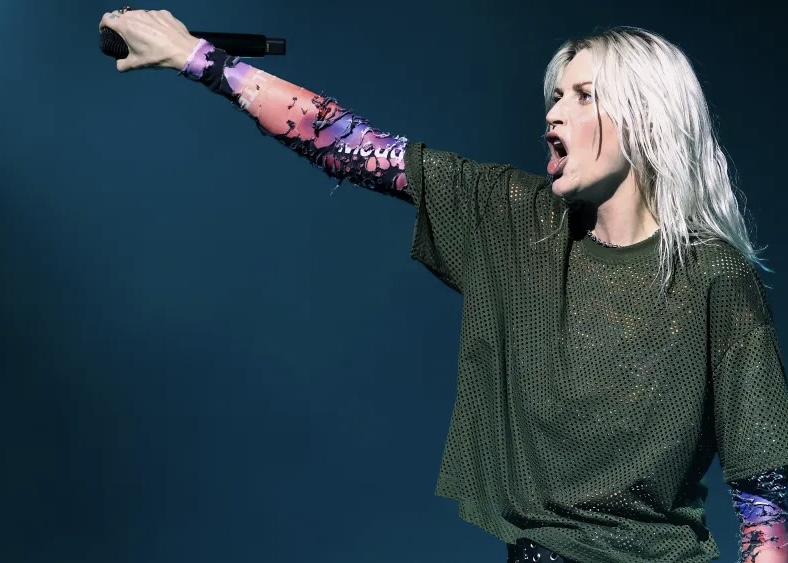Introduction: Yearning, Power, and Fantasy
“Dream Woman” is a sultry, introspective track that delves into the whirlwind of desire, self-expression, and the push-pull of romantic pursuit. From the alluring refrain to the uncompromising pre-chorus, these lyrics capture both the vulnerability of wanting someone to “stay” and the confidence of offering to become a “dream woman.” Let’s break down how each section of the song weaves a narrative about longing, emotional intensity, and the blurred lines between reality and fantasy.
[Intro] Plea for Presence
“Stay
Stay, baby, stay
Stay
Stay, baby, stay”
The opening lines immediately establish a sense of urgency and craving: the repeated command “Stay” reveals the narrator’s deep need for connection. It’s a simple yet powerful plea—a direct invitation for the beloved to remain physically and emotionally present.
Verse 1: Vulnerability and Seduction
“Say that you love me the best
Say that you want me undressed
Lovers you run, always from something
Let me be where you could rest”
Here, the song’s perspective shifts into a more intimate space. By asking the other person to declare love and desire, the narrator expresses both sensual confidence and a desire for emotional validation. The line “Lovers you run, always from something” suggests a pattern of avoidance, hinting that the other person has been fleeing from deeper connections. Inviting them to “rest” signals a tender wish to be their safe haven.
Pre-Chorus: Intense Emotional Commitment
“’Cause I don’t ever wanna feel another fucking way-ay, hey-ey
I don’t ever wanna feel another fucking way”
In the pre-chorus, the lyrics escalate from a request for closeness to a fervent declaration of emotional exclusivity. By using expletives, the narrator underscores how strongly they cling to this particular feeling—suggesting that any alternative would be unbearable. This section captures the raw, no-holds-barred intensity of wanting someone so deeply that you reject all other emotional possibilities.

Chorus: Embracing the “Dream Woman” Identity
“I can be your dream woman, dream woman
I can be your dream woman, dream woman
Dream woman
I can be your dream woman, dream woman”
The chorus serves as the song’s central hook, repeating the promise to fulfill a fantasy. It conveys both empowerment (“I can be…”) and the vulnerability of molding oneself to another’s ideal. The repeated phrase “dream woman” highlights how desire can blur the line between genuine self-expression and performing a role to fit someone else’s vision.
Verse 2: Challenging Fantasies and Reality
“I got a body, I got a story
You got your tongue-twisted fantasy wrong
Is she sleeping when you call me?
In a second, I’m coming for you”
Verse 2 introduces a confrontational edge, reminding the listener that the narrator isn’t merely an abstract fantasy. “I got a body, I got a story” insists on the reality and depth behind the persona of the “dream woman.” It also questions the nature of the listener’s fantasies—perhaps they’re directed at someone else or some idealized version of a lover. The line “In a second, I’m coming for you” reasserts control, suggesting a shift in power dynamics.
[Reprise] Returning to the Need for Presence
“Stay
Stay, baby, stay
Stay
Stay, baby, stay”
Repeating the plea from the intro reminds us that, despite the newfound confidence and challenges posed in Verse 2, the narrator still craves closeness. This reprise ties back to the vulnerability in the opening, emphasizing that longing doesn’t simply disappear in the face of bold declarations.
Verse 3: Tethering Love to Salvation
“Lovers you run, always from something
Come back to me to be saved”
In Verse 3, the narrator addresses the lover’s tendency to flee yet again. However, the tone shifts from asking for rest to offering salvation. It’s a powerful statement that reframes the narrator’s role as a catalyst for healing, positioning themselves as the solution to the lover’s pattern of running away.
Conclusion: The Tension Between Fantasy and Authenticity
“Dream Woman” is a striking exploration of love’s dual nature—being someone’s ideal while grappling with the need for genuine connection. Oscillating between pleas for the other person to “stay” and bold promises of becoming their dream, the narrator underscores the tension between self-empowerment and self-compromise.
In the end, “Dream Woman” challenges us to reflect on our own romantic identities: how much of ourselves are we willing to mold to another’s vision? And how can we reconcile our yearning for closeness with the desire to maintain our true story underneath the fantasy?
.png)









